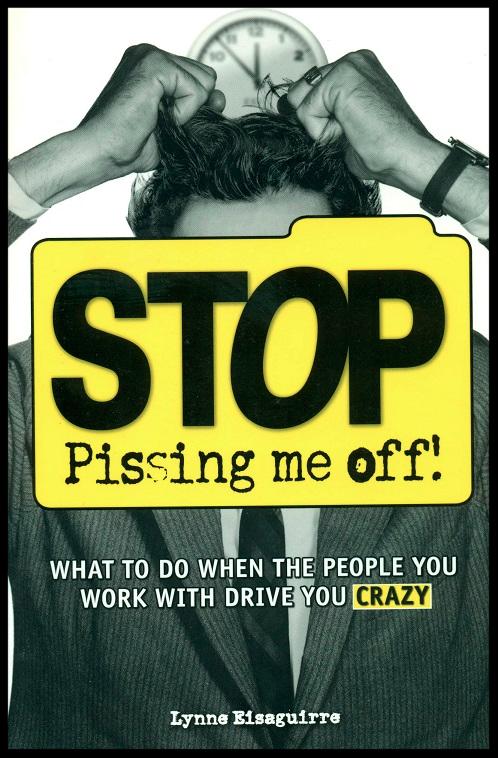|
Attracting and Keeping the Best Employees: What Really Works
What Should You Do?
Here are three things that work —
1) HIRE AND TRAIN ON EQ, NOT IQ
 With change a constant in most organizations and the pressing need to hire and retain top talent, make sure that you hire for Emotional Intelligence (EQ), not just IQ. In my experience, most leaders don’t follow this rule. Instead, they focus on academic credentials and impressive resumes. These are not the things that build a strong culture where people want to join and stay. With change a constant in most organizations and the pressing need to hire and retain top talent, make sure that you hire for Emotional Intelligence (EQ), not just IQ. In my experience, most leaders don’t follow this rule. Instead, they focus on academic credentials and impressive resumes. These are not the things that build a strong culture where people want to join and stay.
Studies show that Emotional Intelligence accounts for 75-80% of success in life. When you interview and check references, don’t just look for skills, look for an ability to empathize, resolve conflict successfully, and skillfully assert one’s own needs. These are traits that build strong teams.
As Herb Kelleher, the iconic founder of Southwest Airlines put it:
“We will hire someone with less experience, less education, and less expertise, than someone who has more of those things and has a rotten attitude. Because we can train people. We can teach people how to lead. We can teach people how to provide customer service. But we can’t change their DNA.”
2) INSPIRE
 Everyone says that good leaders inspire yet most do not have a clue how to create an inspiring environment. Research shows that 37% of employees are not aligned with the organization’s mission and do not know what the company is trying to accomplish and why… much less how they contribute to that goal. Evolutionary biologists tell us that the need to belong and to know how we fit into the tribe is primal. Everyone wants that feeling that they know where the herd is going and why. Everyone says that good leaders inspire yet most do not have a clue how to create an inspiring environment. Research shows that 37% of employees are not aligned with the organization’s mission and do not know what the company is trying to accomplish and why… much less how they contribute to that goal. Evolutionary biologists tell us that the need to belong and to know how we fit into the tribe is primal. Everyone wants that feeling that they know where the herd is going and why.
3) CREATE A STRONG CULTURE
 Organizations with a strong culture average 65% lower turnover than those who do not have one. Many things contribute, of course, to that ideal but there is no question that it starts at the top. Organizations with a strong culture average 65% lower turnover than those who do not have one. Many things contribute, of course, to that ideal but there is no question that it starts at the top.
As a part of several projects we did for Southwest Airlines, we did a presentation for 200 executives right before lunch. Kelleher was there and we were scheduled to have lunch afterwards. He came up to meet me and walk me back to the buffet table. I had never spoken with him before so I was excited to have a chance to meet him. No such luck! As we walked through the crowd Kelleher stopped every thirty seconds to great someone and ask about their son’s recent basketball game, a vacation to Mexico, a divorce, illness or celebration. There was no question that he knew and loved his people and that they relished the attention.
I’m not saying that you should pry into every employee’s private life but — just as Kelleher was famous for hopping into the baggage department unannounced to help lug bags — getting into the thick of things with your people will inevitably lead to closer relationships with them. Your staff will follow suit and follow you off a cliff.
 Did You Know Did You Know
In our management and leadership work we focus on building strong cultures that help you attract and retain the best. We also conduct individual and group emotional intelligence assessments.
Call or write me to discuss your options at: 303-216-1020 or [email protected]
Learn more about our training offerings and check out our team members at:
Read Lynne’s book “We Need to Talk” – Tough Conversations With Your Employee and learn how to tackle any topic with sensitivity and smarts.
Be sure to read Lynne’s book on how to handle tough conversations with your employees.

|
 April 23, 2018
April 23, 2018
 People, of course, are not chickens but TED talker Margaret Heffernan likes to compare the two when she talks to executives about their workforce.
People, of course, are not chickens but TED talker Margaret Heffernan likes to compare the two when she talks to executives about their workforce.  The bottom line:
The bottom line: 

 With change a constant in most organizations and the pressing need to hire and retain top talent, make sure that you hire for Emotional Intelligence (EQ), not just IQ. In my experience, most leaders don’t follow this rule. Instead, they focus on academic credentials and impressive resumes. These are not the things that build a strong culture where people want to join and stay.
With change a constant in most organizations and the pressing need to hire and retain top talent, make sure that you hire for Emotional Intelligence (EQ), not just IQ. In my experience, most leaders don’t follow this rule. Instead, they focus on academic credentials and impressive resumes. These are not the things that build a strong culture where people want to join and stay. Everyone says that good leaders inspire yet most do not have a clue how to create an inspiring environment. Research shows that 37% of employees are not aligned with the organization’s mission and do not know what the company is trying to accomplish and why… much less how they contribute to that goal. Evolutionary biologists tell us that the need to belong and to know how we fit into the tribe is primal. Everyone wants that feeling that they know where the herd is going and why.
Everyone says that good leaders inspire yet most do not have a clue how to create an inspiring environment. Research shows that 37% of employees are not aligned with the organization’s mission and do not know what the company is trying to accomplish and why… much less how they contribute to that goal. Evolutionary biologists tell us that the need to belong and to know how we fit into the tribe is primal. Everyone wants that feeling that they know where the herd is going and why. Organizations with a strong culture average 65% lower turnover than those who do not have one. Many things contribute, of course, to that ideal but there is no question that it starts at the top.
Organizations with a strong culture average 65% lower turnover than those who do not have one. Many things contribute, of course, to that ideal but there is no question that it starts at the top.


 Many complaints about bullying involve what complainants label as condescending or demeaning behavior. When coaching those accused of this behavior, we find that they frequently do not understand what we mean by those terms.
Many complaints about bullying involve what complainants label as condescending or demeaning behavior. When coaching those accused of this behavior, we find that they frequently do not understand what we mean by those terms.
